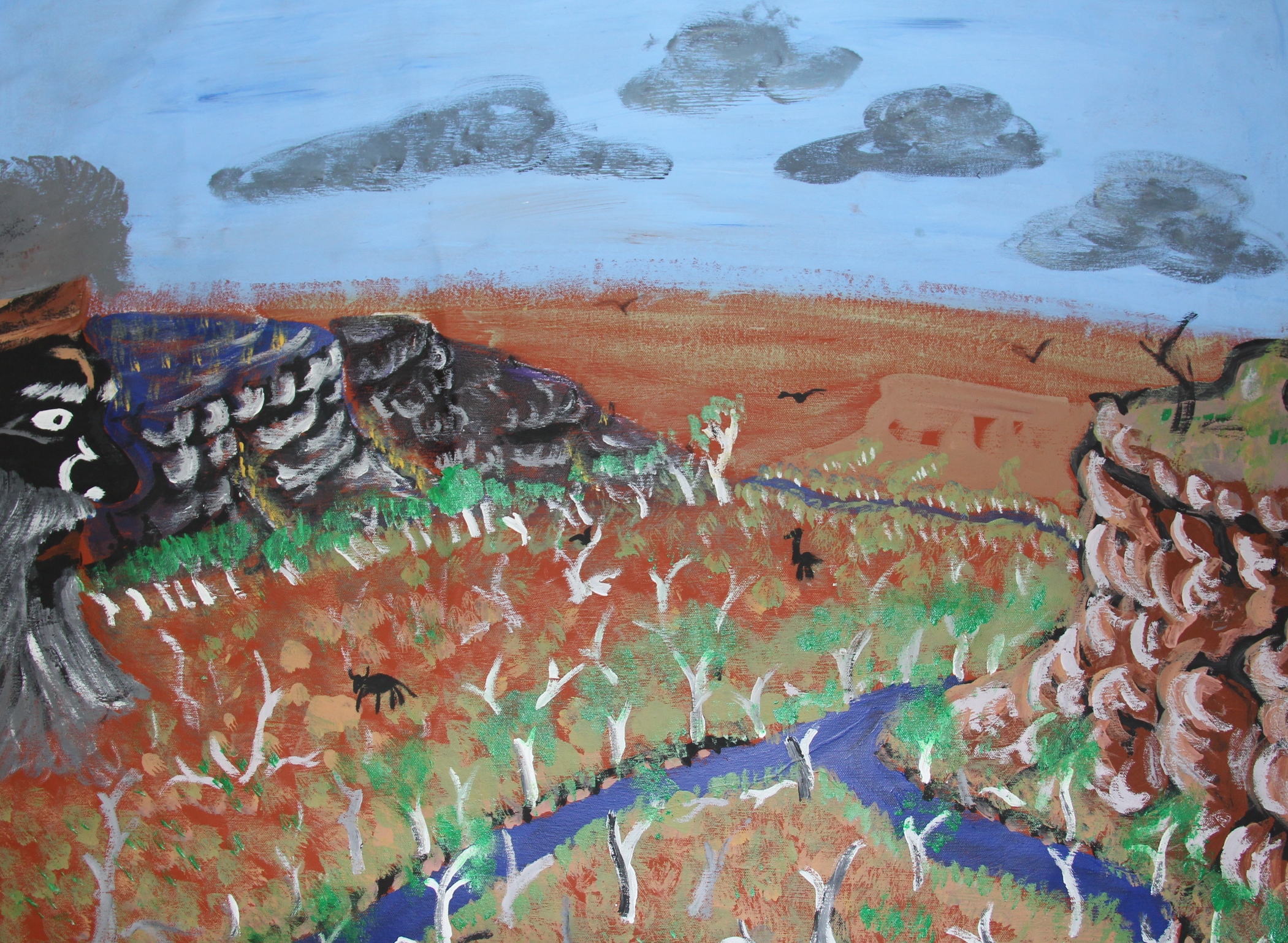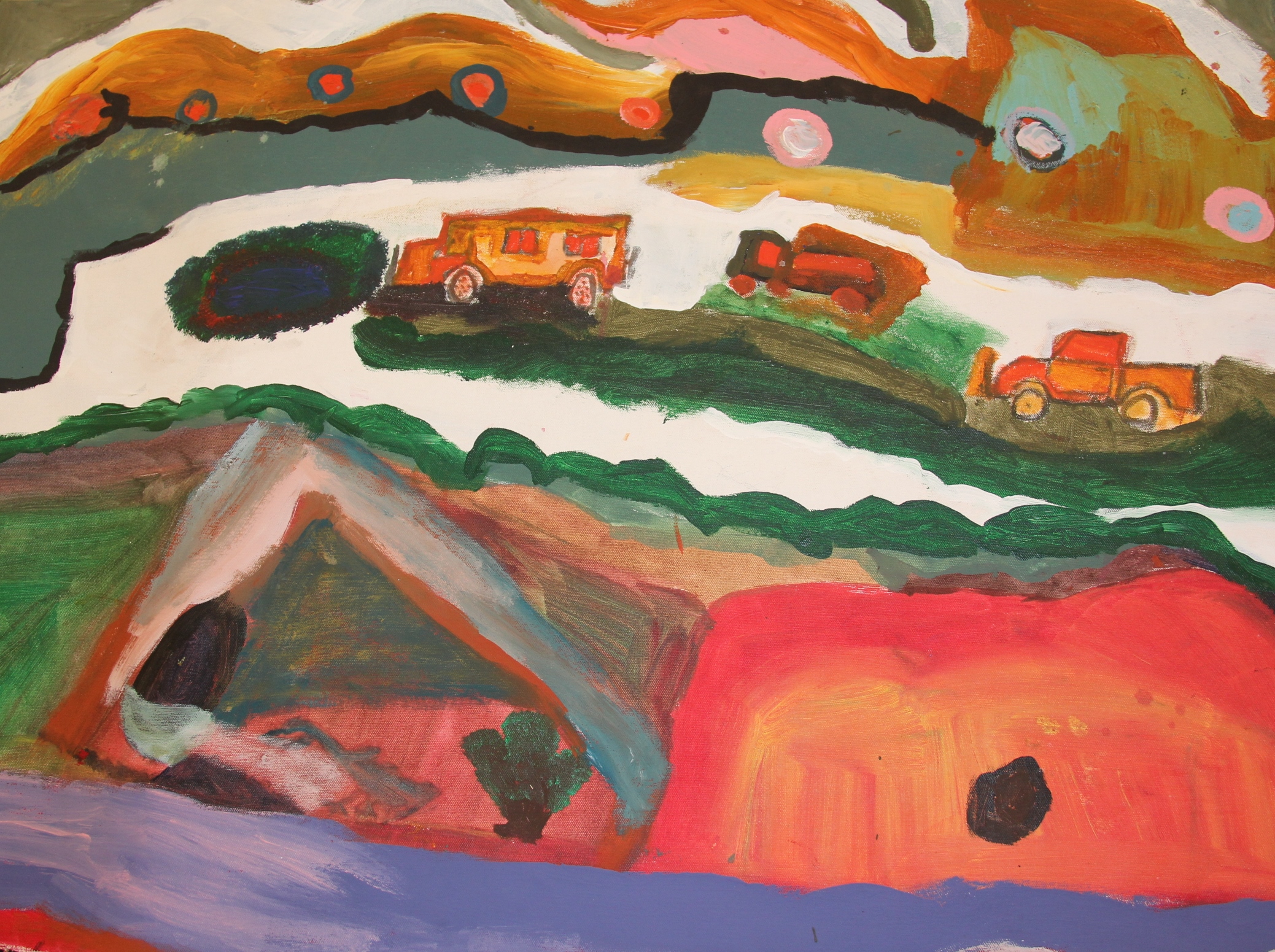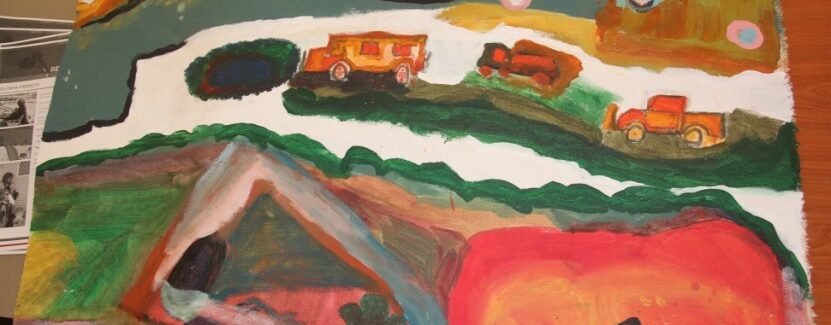Terra Rosa participates in an International Webinar on Ecohealth and explores the question: How will the remote community closures in WA impact Aboriginal wellbeing?
This question was one of the key themes of an international webinar on ecohealth that Terra Rosa was invited to participate in on 5 May 2015. Hosted by Neville Ellis from Murdoch University (WA) with key speakers from Massey University (Auckland, NZ), the 100 Story Building project (Melbourne, VIC) and Charles Darwin University (NT), the webinar linked academics and practical community projects. Others tuned in for the 90 minute session from British Colombia (Canada) and PNG, giving the webinar a broad international audience.
Nell was up first with our presentation on the Irrungadji ‘Return to Country’ trip and on the central theme of using art as a medium for intergenerational learning. She discussed the key partnerships between Terra Rosa, Budadee Foundation, Irrungadji Community and the National Trust (WA). We then turned our attention to some of the stunning artworks by many young, first time artists, produced during the project. Each of the artworks explored an important cultural connection with the natural environment, and reflected the insights of the world’s oldest culture.
This painting by 16 year old Roshelle Yabala explores the relationship between honey ants and witchetty grubs as highly prized traditional bush tucker.

This painting reflects the stories and importance of the traditional country of Troy’s grandmother, Amy French, known as ‘Karlamilyi’ or Rudall River National Park (WA). Amy often talks to her children and grandchildren about growing up on country in a traditional lifestyle, and these stories have been brought to life by Troy’s painting.

16 year old budding artist, Gabrielle Yabala, created this artwork to depict her knowledge of Indigenous tracking practices in the old ‘bushman days’ when Aboriginal people were living completely off the land.

Community elder, Amy French’s piece represents an aerial map of her traditional country, Karlamilyi. This is juxtaposed with the modern day ways to return to country in four-wheel drives, to visit sacred sites and dinner camps.

The transference of culture through the medium of art was certainly happening. Participants also discussed the positive wellbeing and mental health effects for the community. Art was a useful way to achieve both of these centrally important outcomes.
The health benefits of connecting people with place were evident in other presentations too.
Tim McCreanor and Wendy Henwood’s presented on two environmental restoration programs in New Zealand that had worked closely with local Maori groups to increase community engagement in key natural areas and achieve some important health benefits in the process. In restoring a waterway the project had mentored and trained local communities as well as putting eel back on the traditional menu!
Simon Conlon is the project facilitator for the exciting 100 story building in Footscray, VIC, which provides a place for local children from disadvantaged backgrounds to be creative, find support and a sense of belonging. His presentation focused on how the building inspires literacy, confidence and creativity. This urban approach to eco-health connects people with built environments and others to ultimately promote healthy social lifestyles.
The discussion then turned to the topical remote community closures in Western Australia and how this may impact on Aboriginal wellbeing and connection to country. Nell raised that in recent discussions with elders, they had forecast a range of social and health related problems that closing the communities would cause, including the trauma of dispossession and the related mental health consequences. They saw the money saved from the closures having to be reinvested to treat and address the resultant health issues across a range of public services.
Nell also noted how Kanyirninpa Jukurrpa and the Martu mob had been achieving very successful Indigenous health outcomes, working on country as Indigenous rangers. A recent article claimed that for every $1 invested into Indigenous ranger programs, there was found to be a $3 social return across a range of sectors including education and health programs.
Finally, Margot from Canada, noted that the Latin root of the word ‘eco’ is in fact ‘home’, and that positive and creative engagements with one’s home or country is at the core of an eco-health perspective. She then posed the idea that in having this important discussion, we are merely relearning what Indigenous people across the world have always understood – that art and storytelling are integral ways to connect with our environments and communities, and to improve our health outcomes in the process.
It was a fantastic experience participating in the webinar and we hope to keep the discussion rolling in upcoming months. Terra Rosa will be facilitating more projects that promote intergenerational learning and wellbeing through the arts, and we will continue to seek Indigenous insights into the potential impacts of remote community closures.

